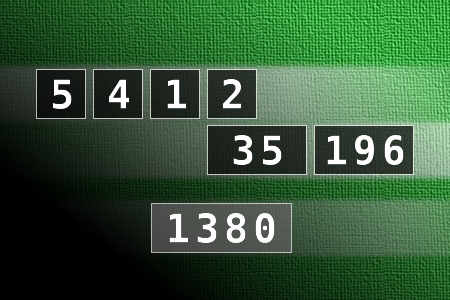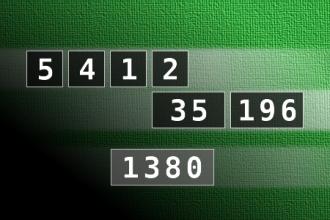Calculate the number 1380
NUMBERMANIA: Calculate the number 1380 using numbers [5, 4, 1, 2, 35, 196] and basic arithmetic operations (+, -, *, /). Each of the numbers can be used only once.Correct answers: 1
#brainteasers #math #numbermania

Daniel Tosh: Blaming the Amish
Am I the only person who blames global warming entirely on the Amish? Are they not a constant reminder of how awful life would be without all this great technology? Every time I want to cut back and conserve on natural resources, I just look at the Amish and Im like, F**k that.

